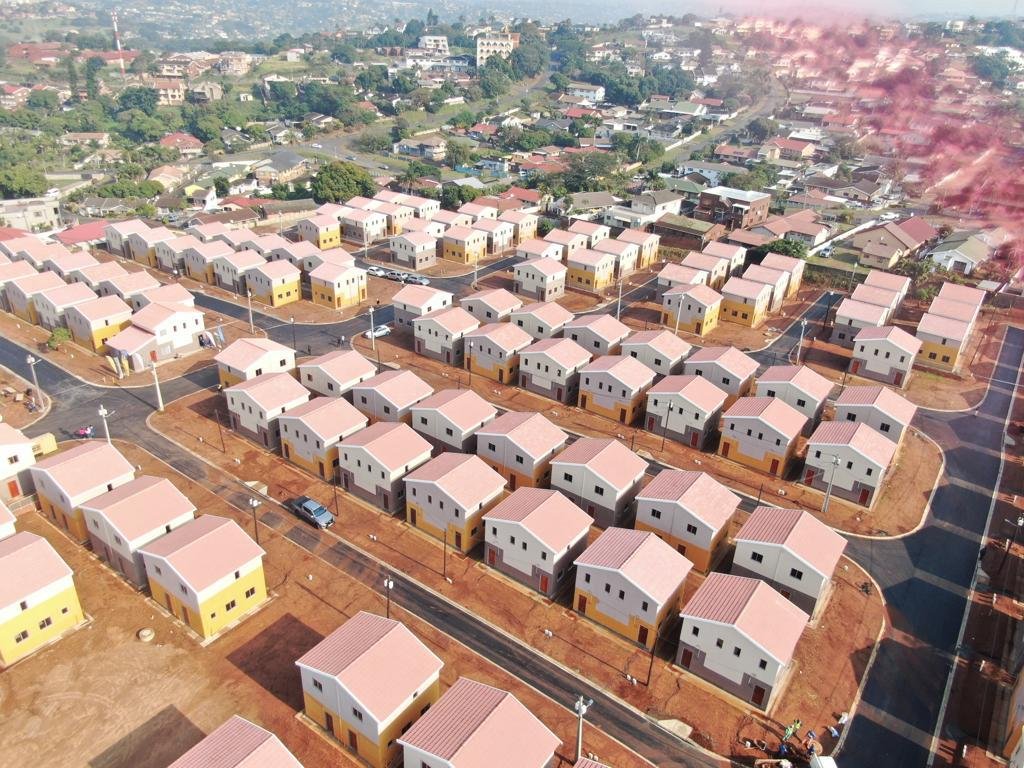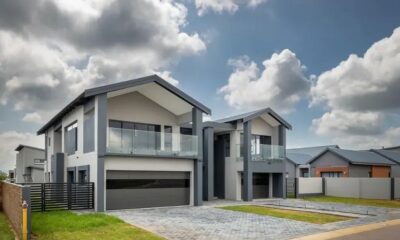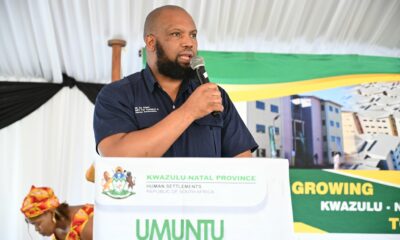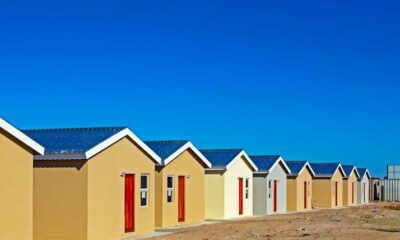News
From Bricks to Belonging: SA’s Human Settlements Department Embraces a Bold New Mandate

A shift in purpose, not just policy, marks the 7th Administration’s vision for housing and dignity in South Africa
In South Africa, the concept of “home” has long been entangled with the legacy of inequality. While millions have received RDP houses since 1994, the challenge of creating dignified, integrated, and inclusive human settlements remains unfinished business.
Now, under the 7th Administration, the Department of Human Settlements (DHS) is attempting a long-overdue pivot—from being a mass housing builder to becoming an enabler of livable, equitable spaces.
This reframing, say policy experts and academics, could determine whether South Africa finally escapes the cycle of peripheral housing, urban exclusion, and service backlogs.
A Promising Reset: Budget, White Paper, and Reforms
In her 2025 Budget Vote speech, Human Settlements Minister Thembi Simelane outlined a five-year plan to deepen the department’s impact, not just through numbers, but through smarter, more strategic interventions.
The 2025/26 targets include:
-
41,944 housing units
-
32,250 fully serviced sites with roads, water, sanitation and electricity
-
4,282 First Home Finance units (formerly FLISP)
-
3,000 social housing units
-
8,047 mud house eradications
But these numbers are part of a larger story.
Behind the scenes, the department has approved a new Human Settlements White Paper—the first in nearly two decades. It lays the groundwork for integrated urban planning, spatial justice, and the expansion of digital systems to reduce fraud in housing allocations.
As Minister Simelane put it: “We are consolidating past investments, responding to urgent needs, and deepening our developmental impact.”
Academic Voices: “The Shift Must Be Real, Not Rhetorical”
Dr Uduak Johnson and Dr Thandile Ncwana, academic leaders from the Management College of Southern Africa (MANCOSA), say the DHS is taking promising steps—but must go further to put people, not just policy, at the centre.
Speaking to Independent Media Property, they noted that housing delivery has often happened at the urban fringe, away from schools, transport, jobs, and clinics. This reinforces apartheid spatial patterns.
“The real challenge is to move beyond counting housing units and begin enabling settlements that are equitable and inclusive,” said Dr Ncwana.
What Progress Has Been Made?
While South Africa still faces a housing backlog of over 2.3 million units and 2,700 informal settlements, recent progress includes:
-
The Special Housing Needs Programme (launched in March 2025), targeting the elderly, persons with disabilities, and survivors of gender-based violence.
-
The Housing Assistance Programme for Military Veterans, with over 4,500 beneficiaries.
-
Governance stabilisation, including new board appointments across five of six DHS entities.
-
Digital systems to improve beneficiary tracking and combat ghost allocations.
And in the social housing sector, the Social Housing Regulatory Authority (SHRA) has approved 1,898 units, while the SHIP 15A pipeline continues to expand.
But Major Hurdles Remain
According to Dr Johnson and Dr Ncwana, budget cuts, inflation, and governance failures at provincial and municipal levels have dampened impact.
The Informal Settlement Upgrading Partnership Grant (ISUP) exists on paper, but informal settlements continue to grow, often without meaningful upgrading. Audit reports from the Auditor-General and the Special Investigating Unit (SIU) have revealed:
-
Irregular expenditure
-
Ghost beneficiaries
-
Slow land release
-
Underspending in provinces like Gauteng and the Western Cape
In contrast, the Eastern Cape spent 99% of its allocated funds—a rare bright spot.
A Call for a New Developmental Model
To rise to the occasion, the DHS must embrace its role as a facilitator, not just a funder or builder. The MANCOSA academics recommend:
-
Prioritising well-located urban land over peripheral development
-
Upgrading informal settlements, not demolishing them
-
Supporting People’s Housing Processes (PHP) to allow communities to co-produce their homes
-
Blended finance, combining public funds, private capital, and concessional loans
-
Performance-based budgeting, where efficient provinces get rewarded
These aren’t radical ideas. They’re essential if the department hopes to deliver not just shelter, but dignity, access, and opportunity.
A Moment of Reckoning and of Possibility
As South Africa reflects on 30 years of democracy, its cities remain haunted by spatial injustice. From shack fires in informal settlements to corruption scandals in housing projects, the demand for a more accountable, people-centred approach is growing louder.
The Department of Human Settlements has started shifting direction. The hope now is that it won’t just be a rebrand of the same old system, but the beginning of a new era where homes are built around lives, not just targets.
Because in South Africa, a house is more than a roof, it’s a future.
{Source: IOL}
Follow Joburg ETC on Facebook, Twitter , TikTok and Instagram
For more News in Johannesburg, visit joburgetc.com



























